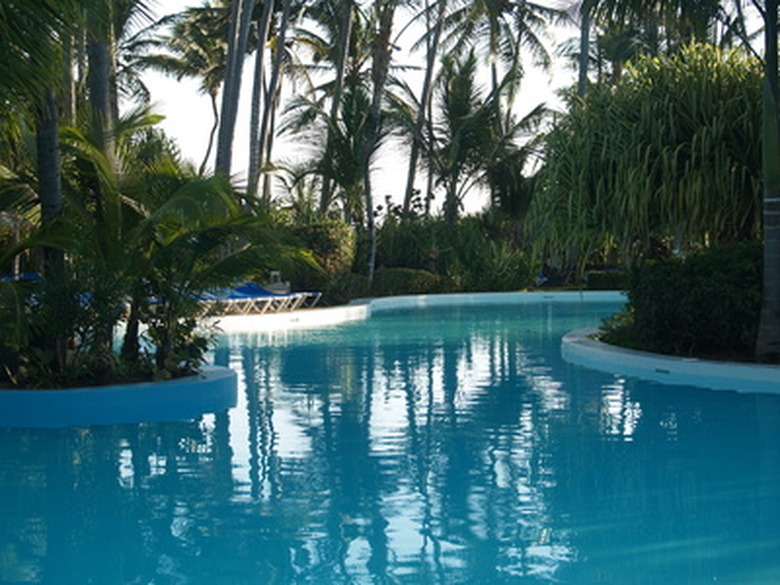How Often Do You Need To Change Pool Water?
A sparkling, clear swimming pool is inviting on a hot summer's day, but if the water quality is poor, the pool may sicken rather than refresh its users. For that reason, swimming pool owners need to be diligent about properly maintaining their pools. Part of this maintenance includes changing the pool water when needed.
There is remarkable disagreement about how often the water should be changed in a pool. Some people argue that it's never necessary if the filtration system is operating properly and the pool chemistry is very carefully monitored and balanced. At the other end, many public swimming pools are drained and refilled twice a year.
For homeowners, the best recommendation is to drain and refill your swimming pool every two to three years. A number of factors will influence how often you should change the pool water.
Use of Chemicals, Filter and Vacuum
Use of Chemicals, Filter and Vacuum
How often you need to change your pool water depends in large part on your daily maintenance routine. It's important to keep the free chlorine and pH levels at the right levels. Chlorine should never drop below 1.0 parts per million, or it will not be effective in killing algae and harmful bacteria. The pH level of the pool should be between 7.2 and 7.6.
Test your water daily to determine where the chlorine and pH levels fall. If you keep the levels steady, you don't have to change your pool water as often. Using a good filter and cleaning it out on a regular basis keeps your water clean, as does the use of an automatic pool vacuum.
When you begin to find it difficult to maintain the water chemistry and your filter system seems unable to keep the water clear rather than cloudy, it's probably time to change the water. After emptying the pool, thoroughly clean the liner or walls before refilling it.
Hard or Soft Water
Hard or Soft Water
The type of water you use in your pool can also be a factor in how often you need to replace it. Hard water contains more minerals, which build up on the walls and bottom of the pool over time. Scrubbing the walls on a regular basis with a brush or vacuum helps, but swimming pools filled with hard water may still need to be emptied more frequently than those with soft water.
TDS Levels
TDS Levels
As water evaporates from your pool, it leaves behind the minerals it contained. As you add more mineral-rich water, the ratio of minerals to water increases. A total dissolved solids (TDS) test can measure how many minerals and salts your pool water contains. As this level increases, it takes more and more chemicals to clean your water. Once the TDS level reaches 1,550 ppm, it is time to change the water in your pool. If the TDS level is borderline, it may be possible to bring it to an acceptable level by a partial replacement of the water — draining half the water and adding fresh water.
Closing a Pool for Winter
Closing a Pool for Winter
In climates where a pool is "closed" by covering it for the winter, it is especially important to make sure the pool water is in good shape before covering it for the season. Doing so will ensure that the water is easily brought into chemical balance the next season when the pool is uncovered. Here are some standard recommendations for proper water conditions before closing the pool for the winter:
- Pool pH should be between 7.2 and 7.6.
- Calcium levels should be between 175 and 225 ppm, for all pool types.
- Alkalinity should be 80 to 125 ppm for masonry pools, and 125 to 150 ppm for other pool types.
- Check the stabilizer level, and adjust it to 30 ppm.
- Check the chlorine level, and adjust it to 1 to 4 ppm.
Other Considerations
Other Considerations
Some situations necessitate an immediate change of the pool water. Cloudy, green water, a bad smell, slimy pool walls and obvious debris are all signs that the pool water may be bad for a swimmer's health. While a chlorine shock may serve to clean the water temporarily, if the conditions are extreme, a complete change of pool water may be needed.
